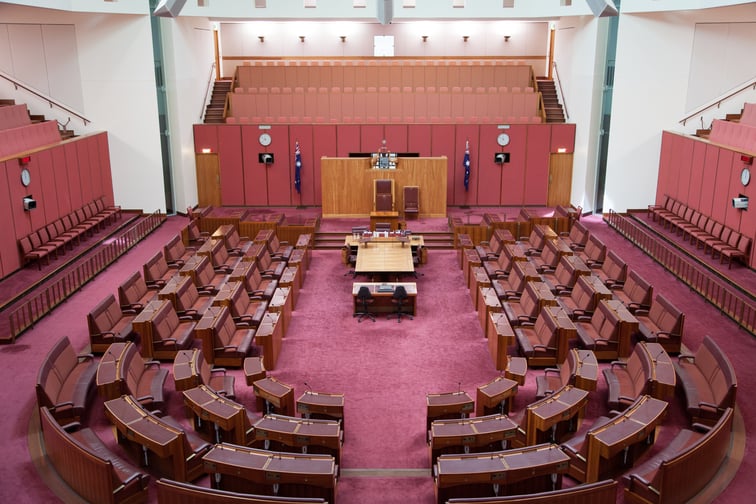

The Australian Senate will this week debate some of the most significant reforms to the rules that govern lending in Australia, after the Senate Economics Legislation Committee recommended changes to the National Consumer Credit Protection (NCCP) Act.
The Committee, which has a majority of Coalition members, voted along party lines to recommend the reforms, which represent some of the biggest changes to the lender/borrower relationship since regulations were tightened in the wake of the Global Financial Crisis (GFC) in the late 2000s. Labor and Green Senators on the Committee voted against and issued dissenting statements.
The reform will likely be put to a vote this week. Should the party lines hold, it will come down to Crossbench votes in the Senate to decide if it passes.
At the crux of the issue are the responsible lending obligations. Currently, the onus is on lenders to vet borrowers for their suitability, a move that was brought in after the wave of defaults that precipitated the GFC.
Should the reforms be passed, it would see the emphasis shift in favour of the lenders, who would now be able to take borrowers at face value based on the information that they supply, without further investigation required.
The new reforms have been proposed in an attempt to help credit flow more freely through the economy and allow for lending to help lift Australia out of the COVID-19 induced slump. They would also shift the burden of consumer protection away from banks and onto regulators such as AFCA.
Recommendation 1.1 of the Hayne Royal Commission into the banking sector explicitly warned against amendments to the NCCP Act and put the job of addressing suitability to receive a loan onto the lender, something which the Greens mentioned in their statement of dissent.
Furthermore, the Australasian Consumer Law Roundtable, a group of legal scholars, published an article today that was based on a submission made to the Committee in February.
“Even after Hayne, banks are continuing to fight their obligations and have yet to show they have changed their ways,” it said.
“Consumer protection in the field of finance is important - it contributes to strengthening financial stability. The abusive, predatory and irresponsible lending practices that led to the US subprime mortgage crisis make this clear. The government’s suggestion that it is fair for borrowers to take responsibility for their own circumstances doesn’t hold water.”
“No matter how diligent their inquiries, consumers frequently lack the expertise to understand their circumstances and what financial products will be best for them. For many, almost all of the expertise lies with the banks. “
The Senate majority group said that it was “concerned by evidence that the regulatory framework has resulted in consumers being unable to access credit in a timely manner to buy their first home or to obtain a grant under the HomeBuilder scheme.”
With home loans and property prices soaring, record levels of borrowing have taken place since the lockdowns of last year, with low interest rates and high consumer confidence fuelling a boom.
Should the reforms be passed, the flow of credit would increase yet further and, theoretically, continue the ongoing growth in house prices as a barrier would be removed that currently keeps a subsection of consumers out of the market.
Industry figures have spoken out in favour of the changes. “This reform means less time and paperwork for borrowers, not less scrutiny for lenders,” said Anna Bligh, CEO of the Australian Banking Association. “It means less reliance on obscure discretionary spending during the loan assessment and more attention on the factors that count, like income expenses and debt.
“Banks know from decades of experience that Australians are reliable and responsible borrowers. They adjust their lifestyle to repay their loans, and when things go wrong it is rarely, if ever, due to spending habits but more to major life events that impact income, such as job loss, illness or divorce. That's why this change makes sense.”
